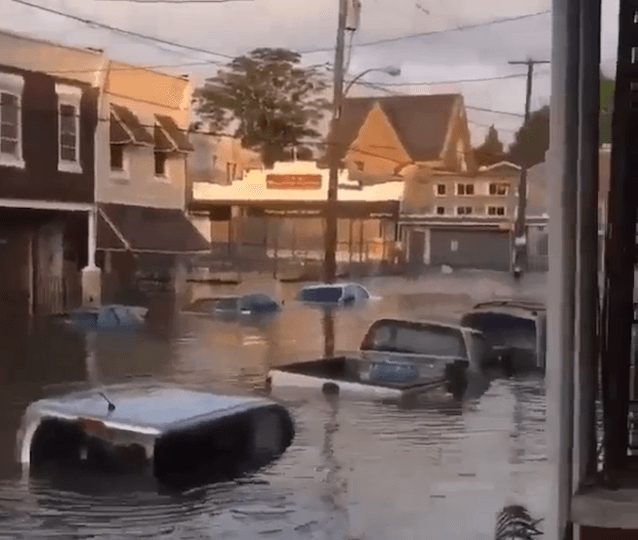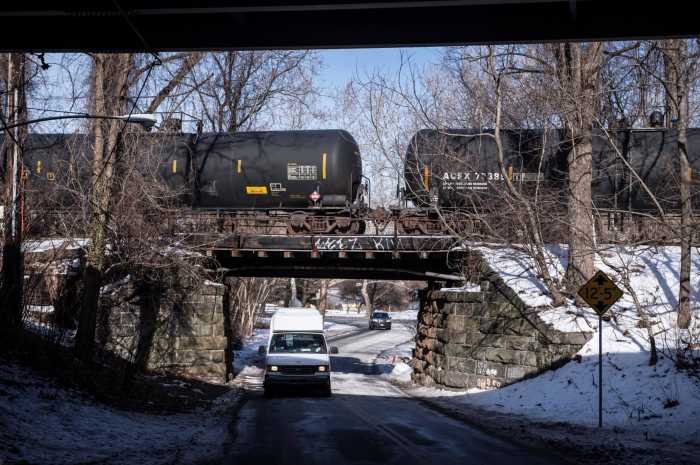Contaminated, smoggy air is directly worsening asthma conditions in thousands of Philadelphia’s children, according to a study released Wednesday by an environmental group.
An estimated 12,206 childhood asthma attacks occur in Philadelphia each year because of smog produced by nearby gas and oil operations, theClean Air Task Force (CATF) announced.
Gas and oil production such as that which occurs at refineries around Philly create the ground-level ozone that is the main constituent of smog, according to CATF.
“This is a terribly large number of asthma attacks in children due to pollution from the oil and gas industry,” said CATF advocacy director Conrad Schneider in a statement.
CATF believes the data demonstrate the need for the federal Environmental Protection Agency to issue “strong guidelines for existing oil and gas equipment” in Philly and other areas that have high “ozone smog.” RELATED: Activists opposed to ‘energy hub’ proposal deliver petition to Mayor Kenney “Many days in Philadelphia ozone smog is so severe it is a visible haze over the city’s skyline,” said Villanova University professor Dr. Ruth McDermott-Levy. “This potent air pollutant is responsible for increased asthma hospitalizations, increased school absences of students and teachers and lost production for workers.” CATF’s data was published online in a nationwide “threat map” that shows air quality issues throughout the country based on proximity to drilling and other oil operations.
The report concluded that nationally, ground-level ozone from oil and gas pollution causes “more than 750,000 asthma attacks in children, 500,000 days of school missed, nearly 2,000 asthma-related emergency room visits, over 600 respiratory-related hospital admissions, and over 1.5 million restricted activity days.” Pennsylvania is the nation’s second largest producer of natural gas. Philadelphia Energy Solutions, a refinery in Southwest Philly, has been accused of worsening air quality for residents in the area. Theresa Hill, an activist with Action United, previously spoke out about how the air quality in the neighborhood affected the health of her and her grandchildren. “As soon as we got out of the car, westarted choking. We couldn’t breathe,” Hill said of moving into the vicinity of the refinery.
Fossil fuels supporters say PES, which is up for sale and weighing an expansion, could contribute to revitalizing Philadelphia’s economy as an “energy hub.”
But environmentalists who oppose the expansion say operations like PES are seriously damaging the health of residents, while fracking operations make conditions in places like Susquehanna and Washington County even worse. “We often think of oil and gas pollution primarily affecting people who live in the shale fields, but this new study shows that even here in Philadelphia we directly experience the health impacts of under-regulated oil and gas facilities in Pennsylvania and surrounding states,” said Joseph Minott, executive director of the Clean Air Council. “It is critical that EPA develop national standards that will protect Pennsylvania residents from ozone pollution produced in our Commonwealth and other states with oil and gas operations.”
Philly’s smog sickens thousands of city’s asthmatic kids, report says

Sam Newhouse





























